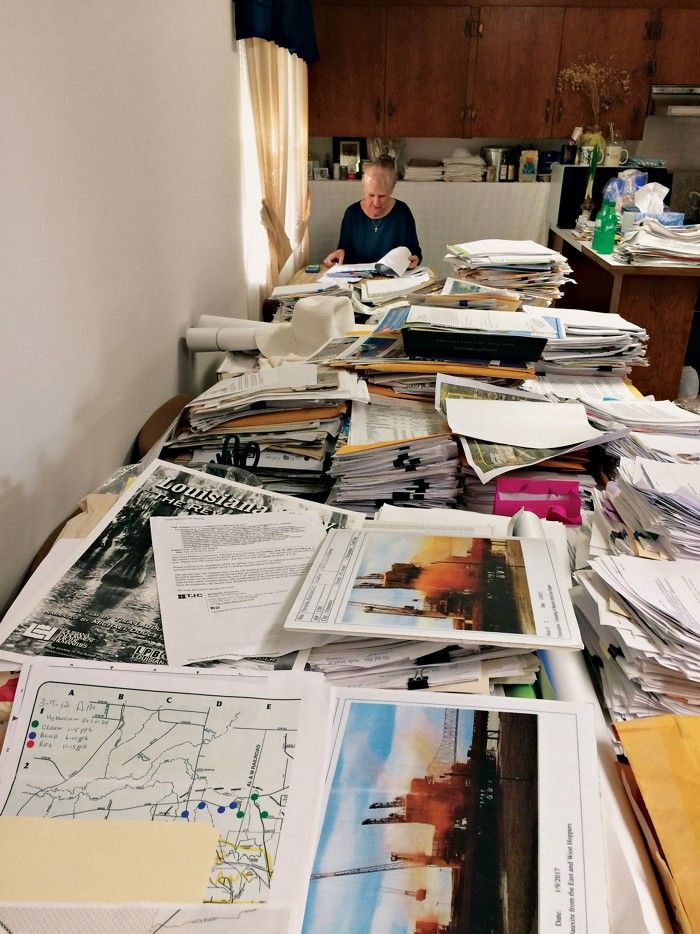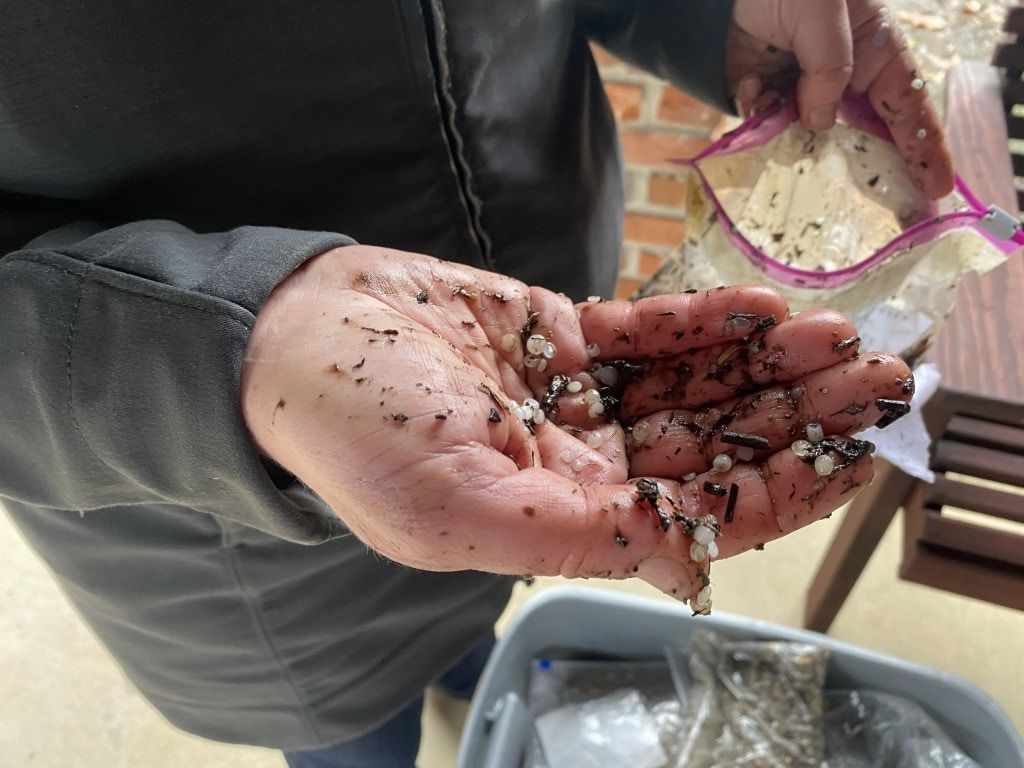For my current research project, I am interested in what constitutes "civic data" -- i.e. data that can be used to turn issues related to environmental justice, public health and economy into problems of public concern. The visuals below narrow down on two a particular dimension civic data: what makes civic data actionable and where do you keep it?

Fig. 1 This is a photo of Wilma Subra, in her "office" in New Iberia, Louisiana, taken by journalist Rick Mullins for an interview. Subra, a trained microbiologist and chemist is among the most prominent figures in the struggle against petrochemical companies in the United States. After working as a leading consultant for the EPA, she eventually focused her energy on supporting NGOs and other community organizations. Though she has worked on cases of industrial pollution across the U.S. – recognized with a MacArthur Genius award – she is particularly well-known for her work in Louisiana's Cancer Alley. Currently, she serves as LEAN’s technical director and is playing a lead role in the effort to stop Formosa Plastics' expansion in the region. In an article and interview for Chemical and Engineering News, Mullin (2020) notes the printed "emission data and regulatory filings" that line Subra’s kitchen table, which also serves as her office. Officially registered as the “Subra Company”, her work began with a small set of employees but has now turned into a "one-woman shop" (Mullin 2020).

Fig. 2 A photo of Diane Wilson, taken by Emree Weaver for the Texas Tribune (2019). Wilson is another well-known activist fighting Formosa in Port Lavaca, Texas. And like Wilma Subra, her work raises the questions of Anthropocene archiving. Originally a shrimp fisherwoman, Wilson has been going on weekly boat trips to collect nurdles around the Formosa facility. While she donates a part of them to the civic science initiative NurdlePatrol, she keeps most of the material in her barn. (together with other documents she has collected).

Fig. 3 This is a close-up shot of plastic pellets collected by activists in Louisiana. Though my research is about civic data in a broad sense (with plastic pollution as one domain), the pellets are a reminder of "rogue data" that cannot be easily archived -- at least in digital space. The nurdles also beg another question that goes beyond archiving and storage: what makes data actionable? In late 2019, the pellets were key evidence for Diane Wilson and supporters to win a historic $50 million environmental lawsuit in Texas. At the same time, activists in Louisiana, activists used the plastic pieces for a symbolic, nonviolent form of protest, dropping them in front of the door of an oil and gas lobbyist. Six months later, the activists were charged with felonies for terrorism.